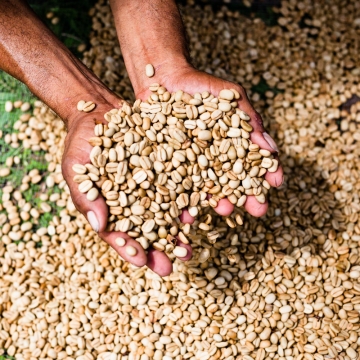The Effects of Storage Technology and Training on Post-Harvest Losses, Practices and Sales: Evidence from Small-Scale Farms in Tanzania
We analyze the impact of a new storage technology and training on post-harvest losses
Willingness to adopt improved shrimp aquaculture practices in Vietnam
The shrimp industry plays a leading role in aquaculture development in Vietnam. Currently, the government is running a credit subsidy program to support farmers investing in improved production methods. This paper aimed to investigate white-legged shrimp farmers’ willingness to invest in improved production methods and to examine whether the current government policy for the sector is in line with farmers’ preferences using a discrete choice experiment.
Consumer preference for eco-labelled aquaculture products in Vietnam
Product labelling with eco-certifications is market-based incentive tool for sustainable aquaculture, thus mitigating negative environmental impacts. The aims of this study are to investigate: i) whether consumers prefer eco-labelled (eco-certified) shrimps over conventional (non-certified) shrimp; and ii) whether consumers prefer specific eco-label (eco-certification logo) over others. The study used a discrete choice experiment method and the structured interviews with 353 consumers in Khanh Hoa province and Ho Chi Minh city, Vietnam.
Trade-off analysis of cost and nutrient efficiency of coffee farms in vietnam: A more generalised approach
Literature has documented significant trade-offs between economic and environmental performance in many areas of agricultural production. However, while it has focused on the trade-off for technically efficient farms there are differing types of trade-offs that exist for differing types of farms. The present paper addresses these gaps in the literature by proposing a more generalised approach to analysing cost and environmental trade-offs. There is also a lack of research on the nature of the trade-off in coffee farming.
Water Use and Climate Stressors in a Multiuser River Basin Setting: Who Benefits from Adaptation?
Adapting to new climate conditions will require an intricate mix of knowledge, planning, coordination, and foresight. There is increasing sectoral evidence on the implementation of successful adaptation actions. However, the success of these actions when we consider the interdependencies among sectors remains debatable. This paper aims to assess who benefits from implementing adaptation options in a multiuser river basin to both climate-induced and demographic stress on water use.
Crop farming adaptation to droughts in small-scale dryland agriculture in Chile
Small-scale agriculture is one of the fundamental economic sectors in Chile. An increased frequency and intensity of extreme weather events due to climate change suggest a higher weather risk for the future, with potential consequences for crop choices. These effects are expected to be greater in dryland areas, where producers are more vulnerable to shocks and, therefore, less able to protect themselves against these risks.
Pagination
- Previous page
- Page 43
- Next page


